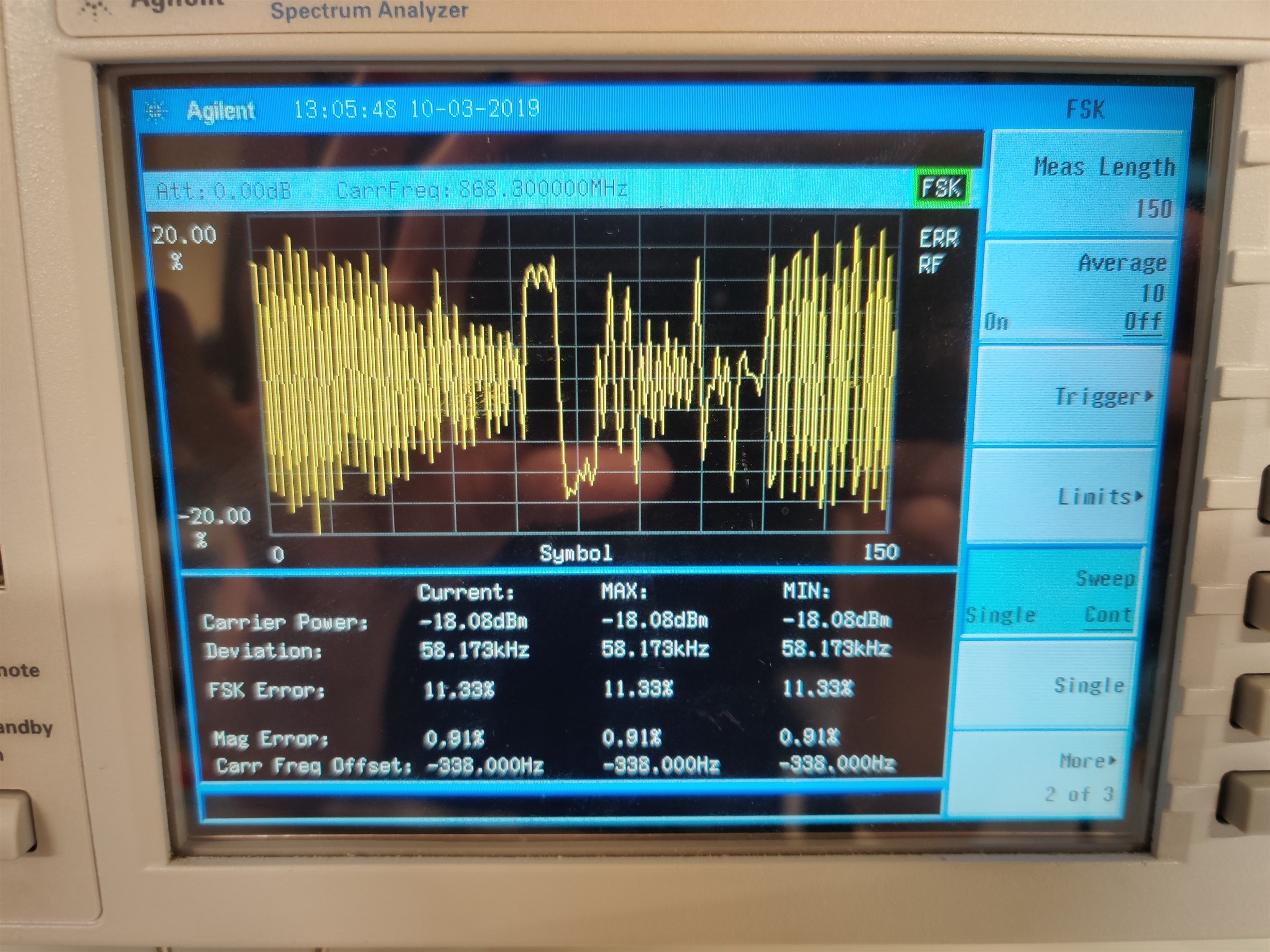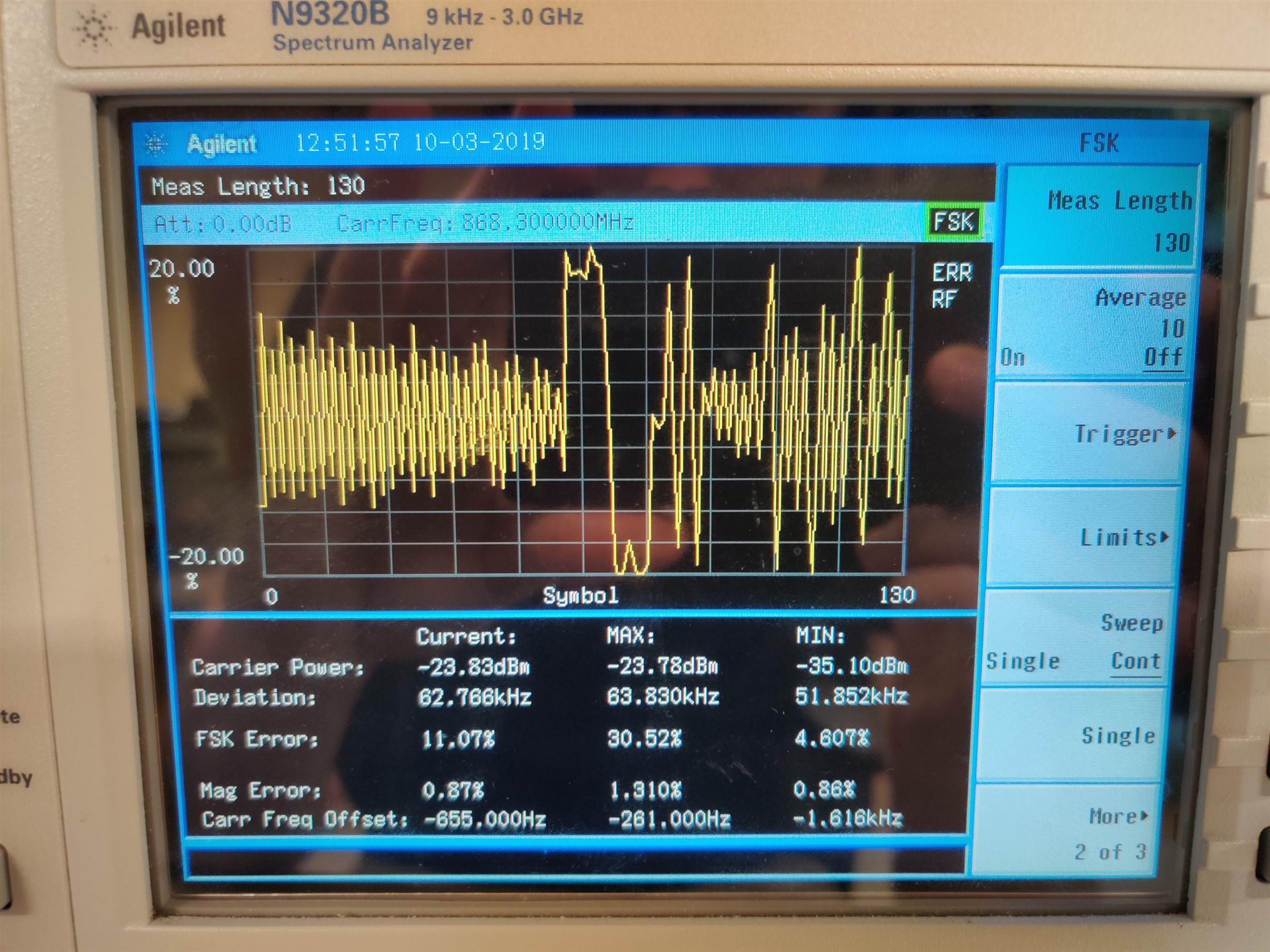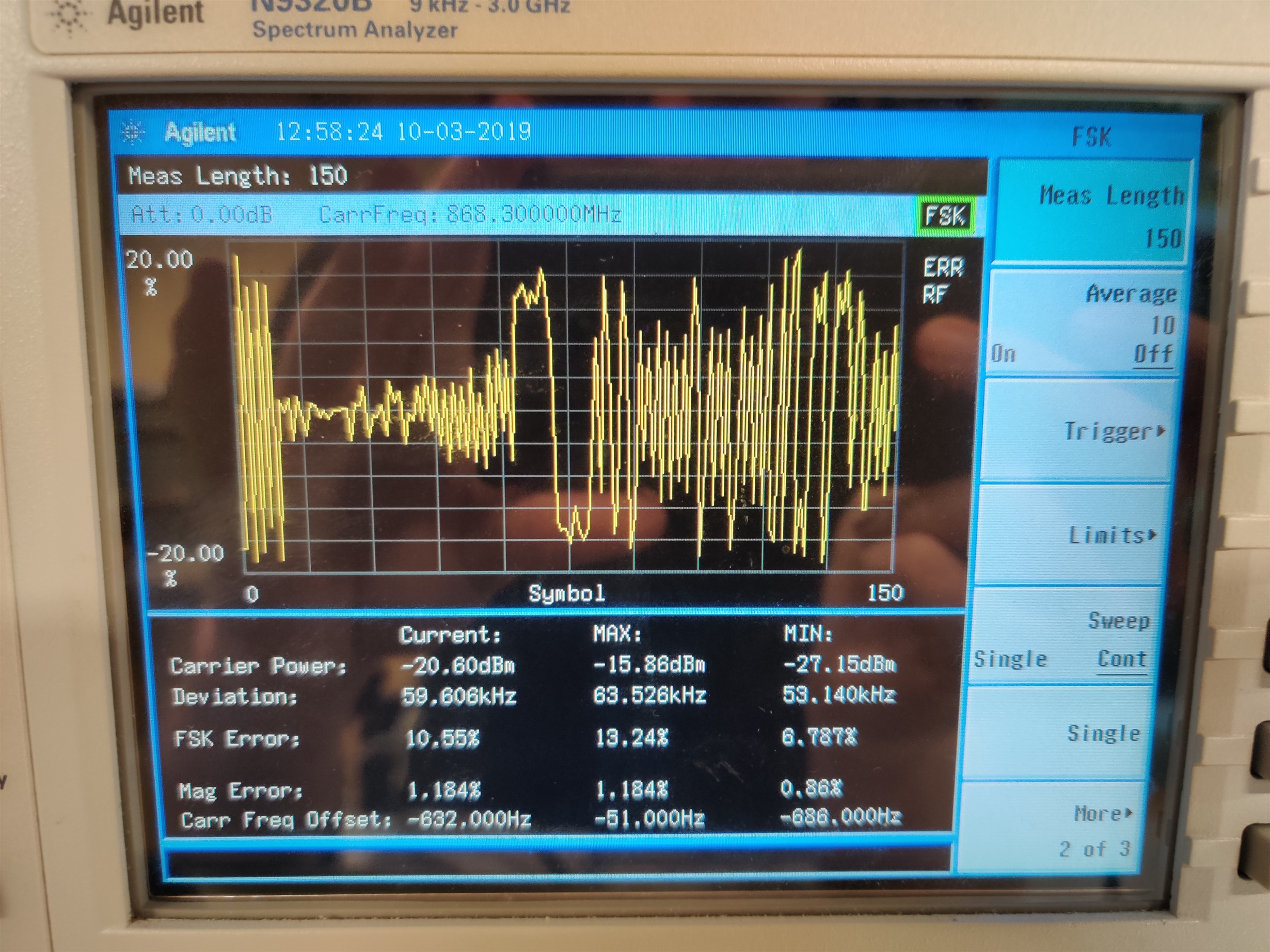Other Parts Discussed in Thread: CC1310, WMBUS
Hello,
We are investigating a problem we are observing with the CC1101 RF Transceiver in a battery operated setup and could use some help.
We observe that when the setup is running for a few days, the deviation of the RF signal decreases for certain parts of the transmitted signal. Attachments of this mail illustrate the measurements made.
The setup has the following relevant parameters:
- The CC1101 is used for 868MHz operation
- In FSCAL2 field VCO_CORE_H_EN is set to high in addition
- In MCSM0 field FS_AUTOCAL is set to 1
- Expected deviation is 50KHz
For testing purposes, I have also enabled the SCAL strobe before going to TX to perform manual calibration, but this does not resolve the issue observed. The errata was taken into account.
We expected the issue to be caused by some calibration issue of the VCO, but are not observing improvement. Could you elaborate on this issue?
Many thanks for the response.
Linda






